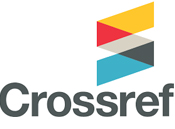Development of Electronic Student Worksheets Based on the Discovery Learning Model to Facilitate Mathematical Understanding Ability of Class XI SMA/MA Students in Limit Function Material
Abstract
This research is motivated by the importance of students' mathematical understanding abilities in Indonesia, especially in Riau Province and the limited number of Student Worksheets that facilitate mathematical understanding abilities. Mathematical understanding is important for students because it becomes a prerequisite for further mathematical concepts, and meaningful learning will last longer. In facilitating students' mathematical understanding skills, meaningful learning is needed. One such learning is the Discovery Learning (DL) model. Applying a learning model alone is not enough to support the realization of an active learning process that can develop students' mathematical understanding abilities. Therefore, a teacher must provide facilities to support students, including developing Student Worksheets. Using appropriate digital technology in learning facilitates and attracts students' interest in learning so that learning becomes more effective. One of the sites that can make student worksheets more interactive by adding media in the form of motion animation, audio and video to it is a live worksheet. This study aimed to produce a product in the form of an electronic student worksheet based on the Discovery Learning (DL) model to facilitate mathematical understanding skills in class XI SMA/MA students on valid and practical Limit Function material. This research uses the ADDIE development model (Analysis, Define, Design, Development, and Evaluation). The resulting product is stated to be very valid and practical with an average percentage validity of 90%, and the average value of the questionnaire response results for students by 83%.
References
Elsa, A. Rodiawati, and S. S. Syam, “Discovery Learning untuk Meningkatkan Kemampuan Pemahaman dan Koneksi Matematis,” Pros. Semin. Nas. Mat. dan Pembelajaran, no. November, pp. 1113–1122, 2021.
H. Apriyanti, “Implementasi Pendekatan Pembelajaran Saintifik untuk Meningkatkan Hasil Belajar Siswa pada Mata Pelajaran Matematika,” 2014.
M. A. Simon, “Explicating Mathematical Concept and Mathematical Conception as Theoretical Constructs for Mathematics Education Research,” Springer Educ. Stud. Math., vol. 94 (2), pp. 117–137, 2016.
dan U. S. Hendriana, Heris, Euis Eti Rohaeti, Hard Skills and Soft Skills. Bandung: Refika Aditama, 2018.
Suraji, Maimunah, and S. Saragih, “Analisis Kemampuan Pemahaman Konsep Matematis dan Kemampuan Pemecahan Masalah Matematis Siswa SMP pada Materi Sistem Persamaan Linear Dua Variabel (SPLDV),” Suska J. Math. Educ., vol. 4, no. 1, pp. 9–16, 2018.
A. Senita and U. Riau, “Analysis of Mathematic Understanding Ability of Senior High School Students on Trigonometric Materials,” vol. 3, no. 1, pp. 47–60, 2021.
Kemdikbud, “Laporan Hasil Ujian Nasional SMA/MA,” 2019. .
I. N. . Degeng, Ilmu pembelajaran: Klasifikasi variabel untuk pengembangan teori dan penelitian. Bandung: Kalam Hidup dan Aras Media, 2013.
R. Haqsari, “Pengembangan dan analisis e-lkpd (elektronik - lembar kerja peserta didik) berbasis multimedia pada materi mengoperasikan software spreadsheet,” Skripsi, no. Jurusan Pendidikan Teknik Informatika Fakultas Keguruan dan Ilmu Pendidikan Universitas Negeri Yogyakarta, p. Yogyakarta, 2014.
H. M. Siregar, T. Solfitri, and R. D. Anggraini, “Analisis Kebutuhan Modul Kalkulus Integral Untuk Meningkatkan Kemampuan Berpikir Kreatif Matematis,” GAUSS J. Pendidik. Mat., vol. 5, no. 1, pp. 16–26, 2022.
H. M. Siregar, T. Solfitri, S. N. Siregar, R. D. Anggraini, and F. Aldresti, “Analisis Kebutuhan E-LKM Kalkulus Integral Untuk Meningkatkan Kemampuan Berpikir Kreatif Matematis,” RANGE J. Pendidik. Mat., vol. 4, no. 1, pp. 55–70, 2022.
H. M. Siregar, T. Solfitri, and S. N. Siregar, “Development of E-Worksheet of Integration Technique Rational Functions Different Linear Factors to Improve Mathematical Creative Thinking Skills,” in 2021 Universitas Riau International Conference on Education Technology (URICET-2021), 2022, pp. 35–40.
Sugiyono, Metode Penelitian Pendidikan. Bandung: alfabeta, 2019.
S. Akbar, Instrumen Perangkat Pembelajaran, Cetakan ke. Bandung: Rosadakarya, 2017.
M. T. Bakar, K. La Nani, Y. Harisman, and A. Amam, “Kemampuan Pemahaman Matematis Siswa Kelas Vii Smp Pada Materi Himpunan Melalui Model Discovery Learning,” Teorema Teor. dan Ris. Mat., vol. 5, no. 2, p. 272, 2020.
S. Suryaningsih, R. Nurlita, U. Islam, N. Syarif, and H. Jakarta, “PENTINGNYA LEMBAR KERJA PESERTA DIDIK ELEKTRONIK ( E-LKPD ) INOVATIF DALAM PROSES PEMBELAJARAN ABAD 21 INFO ARTIKEL Diterima Diterima dalam bentuk review 09 Juli 2021 Diterima dalam bentuk ABSTRAK Kata kunci : Keywords : Pentingnya Lembar Kerja Peserta Di,” vol. 2, no. 7, pp. 1256–1268, 2021.
Kemdikbud, “Permendikbud Nomor 58 Tahun 2014 tentang kurikulum 2013 Sekolah Menengah Pertama / Madrasah Tsanawiyah.” 2014.
I. Ramdani, Pengembangan Bahan Ajar Dengan Pendekatan Pendidikan Matematika Realistik Indonesia (PMRI) Untuk Memfasilitasi Pencapaian Literasi Matematika Siswa Kelas VII. UNY, 2014.
Copyright (c) 2022 Journal of Research on Mathematics Instruction (JRMI)

This work is licensed under a Creative Commons Attribution-NonCommercial-ShareAlike 4.0 International License.






